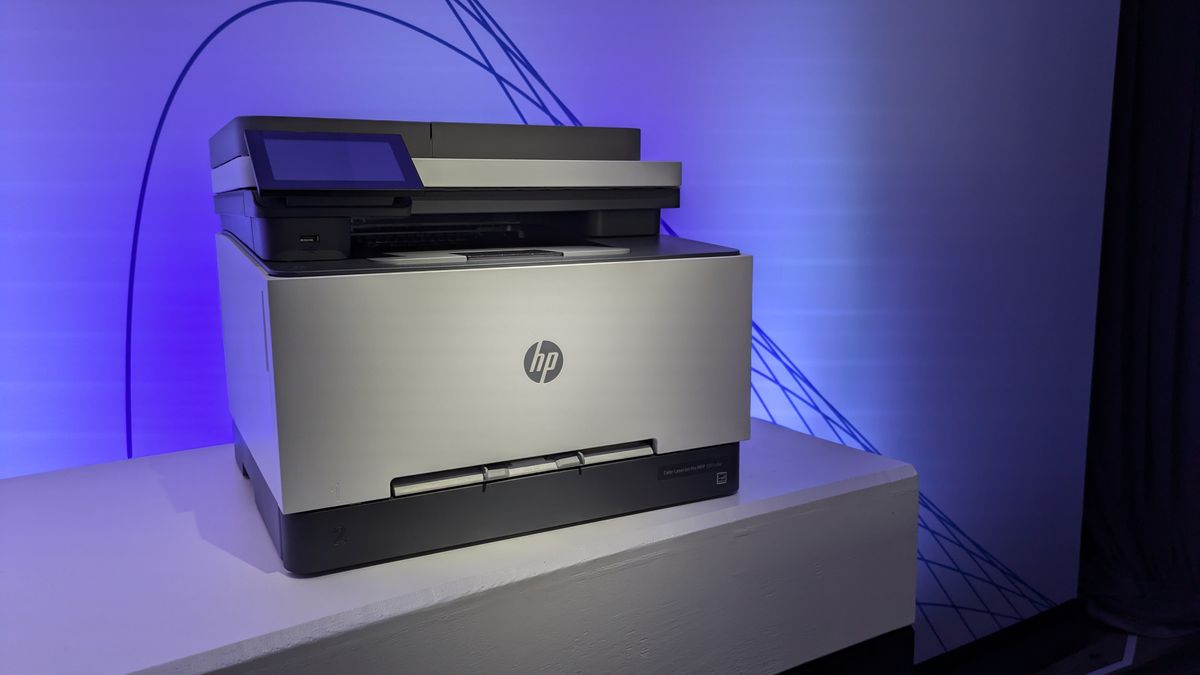You may have thought that digital transformation would spell the end of printing, but it’s 2024 and we are still very keen on a sheet of paper or two.
There are many reasons for this – some are personal preferences, some are job-related – but there is also a great benefit in having physical documents. Some even argue that it’s actually better for you.
However, the printer and the print industry are about to get the generative AI treatment courtesy of HP and its ideas to revolutionize the legacy technology. At Imagine 2004, the firm unveiled HP Print AI, a service designed to make printing frictionless by eliminating common challenges from setup to support.
One of its main features, ‘Perfect Output’, which is in an exclusive beta program, uses generative AI to fix issues like unnecessary white space, issues with image size, or the inclusion of unwanted web ads.
HP says Perfect Output “bridges the gaps between what people see on the screen and what they intend to print” and the feature can detect unwanted content, printing only the text and images the user desires, thereby saving time, paper, and ink.
The thinking behind this is relatively simple; printers are complicated and a huge frustration for users. HP, one of the world’s leading manufacturers of printers agrees.
The company’s president of image, printing, and solutions, Taun Tran, even says so. And that’s why the company is turning to AI.
“We think AI helps us simplify the printing experience, that’s our number one, and that’s what we want to focus on,” Tran said on stage at HP Imagine 2024.
“I think if we do that, the rest of the industry will follow. I can’t figure out what Espon and those guys want to do, but for me, I’m focused on enabling great experiences for HP printers, first and foremost.”
Will AI breathe new life into printing? ITPro put this question to Aurelio Maruggi, president of office print solutions at HP. He suggested that AI will simply remove frustration and wastage. In turn, this will get more of us back to printing.
“I think there is still a lot of waste that is generated by the fact that there is not enough intelligence in transforming digital documents into physical documents,” Maruggi said.
“This brings frustration, this brings waste, and then the consequence, when you are frustrated once, twice, what happens? You stop using the printer.”
Maruggi is a 38-year veteran of the printing industry and he remembers being mocked at college about going into print when the paperless office was going to be the future. What HP is offering today, however, will end years of frustration for him.
“It has been a long, long time since I printed an Excel spreadsheet because I get very frustrated with it,” Maruggi said. “And I like print. PowerPoint I print all the way because what I see on screen I will get in print, guarantee.”
Why do we still like physical paper? For one thing, you actually retain more information. A recent study from the neuroscience department at Columbia University’s Teachers College found that for ‘deeper reading’ there was a clear advantage to reading text on paper over screens.
Taking this argument into the office and people will generally prefer to read and annotate spreadsheets and documents physically – sure, we want to create, edit, and collaborate on screen, but reading it that way isn’t all that comfortable.
We also still print off our photos, drawings, and event invites. Companies create imagery for billboards, for posters, for all kinds of physical spaces. Art is made iconic through prints.
If HP can get the industry moving toward AI, the paperless office could be the thing resigned to history.
Source link
